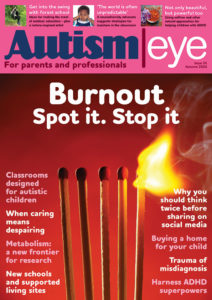The UK’s largest autism study is being launched today (24 August) to look at the wellbeing of those with the condition.
Called Spectrum 10K, the study will include survey findings and genetic and medical research.

Professor Simon Baron-Cohen, who is leading the new Spectrum 10K research
The University of Cambridge is leading the study. It is working with the Wellcome Sanger Institute and the University of California Los Angeles (UCLA).
The research aims to recruit 10,000 people with autism, as well as their relatives, in the UK.
Wellbeing
The work will look at how biological and environmental factors impact the wellbeing of people with autism.
Many autistic people have other health problems such as epilepsy, depression and anxiety.
The researchers said they will look “in detail” at the social and genetic factors behind these other health problems.
And they want to look at why some autistic people have better outcomes than others.
Study addresses ‘urgent need’
Professor Simon Baron-Cohen is leading Spectrum 10K and runs Cambridge’s Autism Research Centre.
Baron-Cohen said there is an “urgent need” to “better understand the wellbeing” of autistic people.
The study is open to everyone with autism. The researchers are also asking relatives to take part.
People can take part by completing an online questionnaire and sending in a saliva sample by post.
The researchers insist they want to capture the experiences of autistic people with and without learning disabilities.
Family members or carers can help with completing the survey and sending in the saliva sample for those with learning disabilities.
Autistic people to ‘build a future’
Dr James Cusack is the chief executive of autism research charity Autistica.
Cusack, who has autism, said autistic people would shape the research and “build a future” where support is “tailored to every individual’s needs”.
The £3m research is funded by charitable foundation the Wellcome Trust.
The first results will appear from 2022 onwards.
Click here to visit the study’s website and to register.
Related:
- Research weak while autism costs £32bn
- Mums’ overy condition may cause autism
- Call for focus on facial expressions
Published: 24 August 2021
















